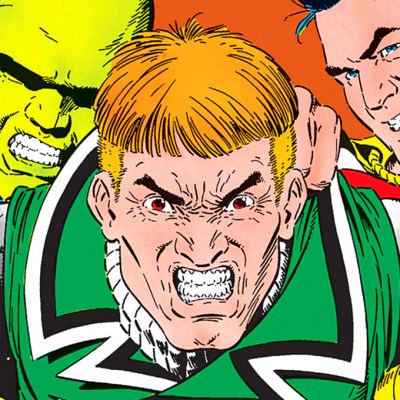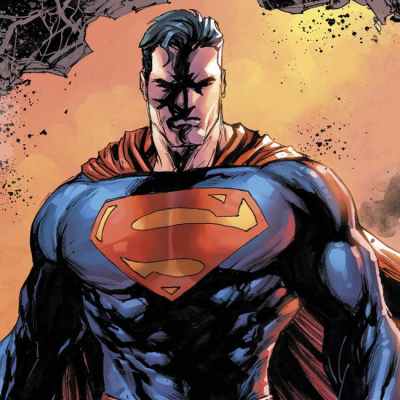Superman Backlash Faced by Christopher Reeve Reminds How Much the Genre’s Image Changed
To young and struggling actors hopeful to be taken seriously in the world of American theater, John Houseman was as much a god as an instructor in the 1970s. Before he was 40, Houseman helped mount productions in the Federal Theatre Project opposite Orson Welles, co-founded the Mercury Theatre, and even contributed to the screenplay of Citizen Kane. He also won an Oscar for The Paper Chase (1973), appeared in Seven Days in May (1964), and wrote and produced plays on Broadway.
So when he told Christopher Reeve, “Mr. Reeve, it’s very important you become a serious classical actor,” the young man listened. He also heard the addendum: “Unless of course they offer you a load of money to do something else.” That something else, in Reeve’s telling, became Superman: The Movie. This anecdote appears in archival footage of Reeve on The Tonight Show in Super/Man: The Christopher Reeve Story, a superb new documentary from filmmakers Ian Bonhôte and Peter Ettedgui, and it offers a fascinating insight into the different world from which Reeve’s Clark Kent hailed.
The son of a serious-minded author, poet, and professor, Franklin D’Olier Reeve, Chris came from an intellectual background. His frame might have been built like a superhero, but when he first began pursuing acting he, foresaw himself practicing the craft on the stage, perhaps in plays written by his Juilliard lecturer, Houseman. Hence why it’s so interesting to see how how Reeve is perceived by his contemporaries and his industry when he became the first actor to star in a major Hollywood superhero movie.
One of Reeve’s friends and co-stars when they were both starting out, Jeff Daniels, recalls in Super/Man a revealing anecdote about when Reeve first auditioned for the Dick Donner movie. Before that moment, the producers had been approached by bodybuilders like Arnold Schwarzenegger and even considered Olympic athlete Bruce Jenner for the cape. Quickly, though, they realized they needed an actual actor. Soon enough, an unknown young man in New York named Chris became a major point of interest for director Richard Donner.
According to Daniels, though, when Reeve told his co-stars on an Off-off Broadway play that he was being flown out to Los Angeles to audition for Superman, one of his colleagues, a young guy named William Hurt, was appalled. Daniels said Hurt berated Reeve. “You can’t do that. You would be selling out!”
Meanwhile Chris’ own severely expectant father, Franklin, revealed similar disapproval. In the documentary, archival footage of Chris revealed the son accidentally confused his father when he told him he had been cast in Superman. Franklin congratulated and toasted his son at dinner because he thought Chris was referring to Man and Superman, a four-act play written by George Bernard Shaw in 1903. Documentary footage then confirmed the father’s actual disappointment over the truth when we see Franklin tell a reporter that his son didn’t tell him about Superman: The Movie “until the contract was already signed.”
Both anecdotes offer a fascinating insight into the world of acting and performance circa 1977. While it would prove to be a consequential year in pop culture, with Star Wars changing the idea of what a popular movie could be, both Hollywood and Broadway were still deep in the throes of a 1970s revitalization. Naturalism, grounding, and “reality” were favored in a decade that saw the likes of Robert De Niro, Jack Nicholson, and a pre-Scarface Al Pacino become stars. Reality-based procedurals like All the President’s Men, and downers like Network and Taxi Driver, were three of the biggest movies of the previous year… and superheroes were viewed purely as kids stuff by artists who dreamed of being the next Brando.
It didn’t matter that Marlon Brando was himself in Superman, as Reeve learned when using that as a justification for taking an audition to other twentysomething actors. “It doesn’t matter!” Hurt apparently told him. It was still selling out. And to be fair, as Reeve would soon discover himself, Brando really did consider Superman little more than a paycheck role. The acting legend couldn’t even be bothered to learn how to pronounce the name of his character’s son, Kal-El, until an acutely serious Reeve demanded his idol put in more effort.
But therein is the fault line in the culture that Reeve unintentionally stepped on. One generation still considered superheroes, if they considered them at all, to be junk made for the same audience who enjoyed 1960s camp television schlock (as they might have seen it), and the next generation viewed it as at least an opportunity to do something credible with universal appeal.
Reeve achieved that with flying colors. He imbued the character of Superman with so much grace and nobility that almost 50 years later no one else has been able to take on the mantle and not been found wanting in some way. He cultivated a tangible dignity in this “cartoon character” which so many contemporaries feared was inescapable.
In fact, many of them would find their way into the superhero genre that Reeve helped pioneer, with Hurt ending up in multiple Marvel Studios movies many years later as Thaddeus “Thunderbolt” Ross. Michael Caine was another Reeve co-star, whose multiple projects opposite the Superman actor included Sidney Lumet’s Deathtrap. Caine, too, ended up doing several superhero movies via Christopher Nolan’s The Dark Knight trilogy. And that revered cycle of superhero flicks began in no small part due to Nolan’s interest in replicating for Batman what Reeve and Donner achieved with Superman nearly 30 years prior.
That in itself shows how the assumptions and opinions of the industry changed, especially on the commercial side. And yet, the unfortunate fact remains that Reeve never really got to break free of those predisposed opinions about superhero movies. While the actor became rich and famous, and got to experiment outside of the cape, including by working with the aforementioned Lumet or in a small but pivotal role opposite Anthony Hopkins in Merchant Ivory’s The Remains of the Day, he never fully beat the typecasting that came with the cape. By the time Superman IV: The Quest for Peace rolled around in 1987, Reeve realized he was wasting his talents a bit in sequels of diminishing quality while being unable to produce a hit elsewhere.
Many contemporaries, both behind the camera and in the audience, refused to see him as more than the Big S. Instead it would many years and multiple younger generations for fan favorite superhero castings to prove not as much a curse as a gift. Nowadays, actors like Hugh Jackman, Christian Bale, and Scarlett Johansson have enjoyed diverse, eclectic, and popular careers with audiences who accepted them as more than just their biggest comic book role.
In the 21st century, the perception of doing superhero movies can still be contentious in some circles, but the fact it is credible and can even lead to greater opportunities for some actors is in many ways another legacy of Reeve’s. He not only proved a man could fly, but an actor could make you care about him too.
The post Superman Backlash Faced by Christopher Reeve Reminds How Much the Genre’s Image Changed appeared first on Den of Geek.
From https://www.denofgeek.com/movies/superman-backlash-christopher-reeve-genre-image-changed/



